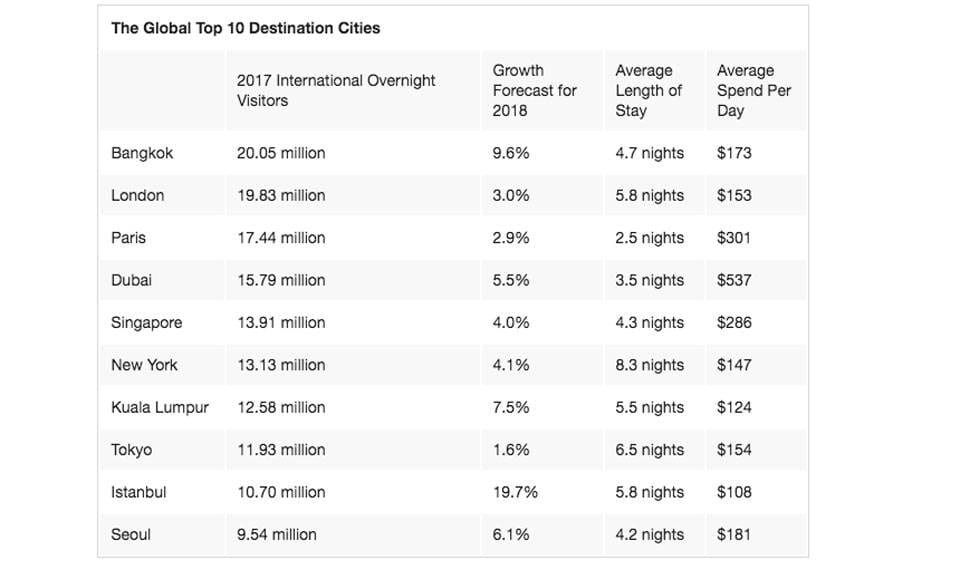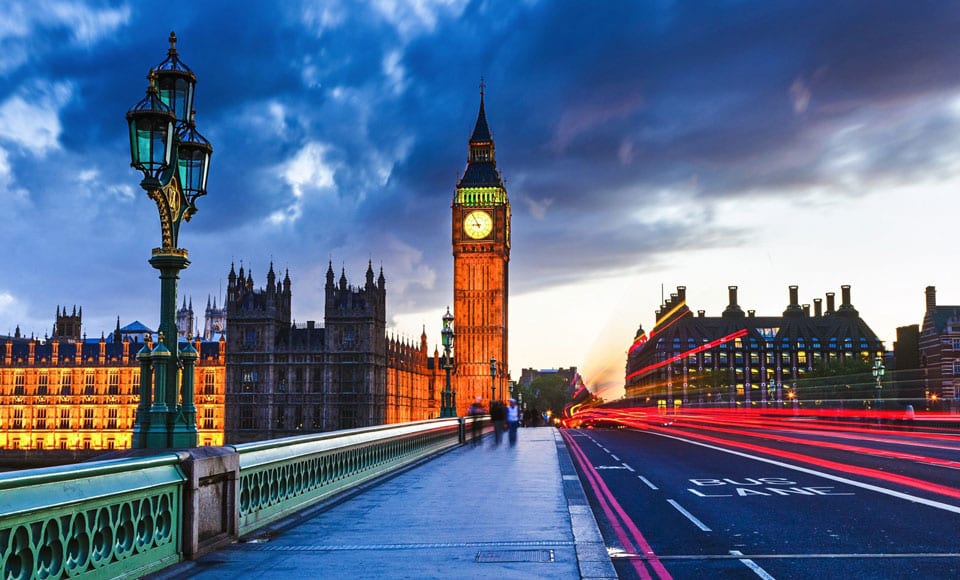While Prince Harry has been doing his bit down under, his home country has let him down.
What do I mean by this? Well, put it this way: what do Big Ben, Trafalgar Square and The London Eye all have in common? They belong to a failed state. Kidding. It’s just a national crisis of polite society: London is slipping down the global destination popularity rankings. And although the decent has been slow, if Mastercard’s 2018 Global Destination Cities Index’s prediction is correct, the home of fish n’ chips, warm beer and cold G &T’s could next year be in for a shock.
Back in 2014 London sat at number one, with 17.40 million annual visitors. However, every year since then it has been out-visited by Bangkok (last year’s 2017 ranking had Bangkok sitting at number one with 20.05 visitors, and London in second place with 19.83). But that’s not the worst of it: hostel owners and proud Londoners will be devastated to hear Mastercard’s 2018 Global Destination Cities Index just gave London a worse growth forecast than any of the other top ten cities except Paris.

“With roughly 20 million international overnight visitors,” the report reads, “Bangkok… is unlikely to be bested due to a strong projected growth of 9.6 percent for 2018.” In contrast, London has a growth forecast of just 3%, only ‘beaten’ by Paris, who at 2.9% had the the most ‘petite’ projected growth of the top 10.
Countries to look out for included: Dubai, Kuala Lumpur, and Seoul, with growth forecasts of 5.5%, 7.5% and 6.1% respectively. The most promising up and comer though, is Istanbul, whose tourism board will be Turkishly delighted by their expected growth of 19.7%—the highest of the bunch.
What does this reveal about what it takes to be a popular metropolis? According to the Index, it underscores, “The importance of robust infrastructure, both business and leisure attractions and strong local culture.”
Of course, it’s not really a competition. As the report points out, “In a world of rising nationalism, international travel… break(s) down barriers, broaden(s) our horizons and driv(es) economic impact… throughout the world’s cities.” This is what really matters—not who’s sitting where on the leaderboard. Which is why, for the past decade, the index has offered important analysis of travel to and within cities, beyond the flashcard statistics. If you would like to check out this extra information, read the full report here.
